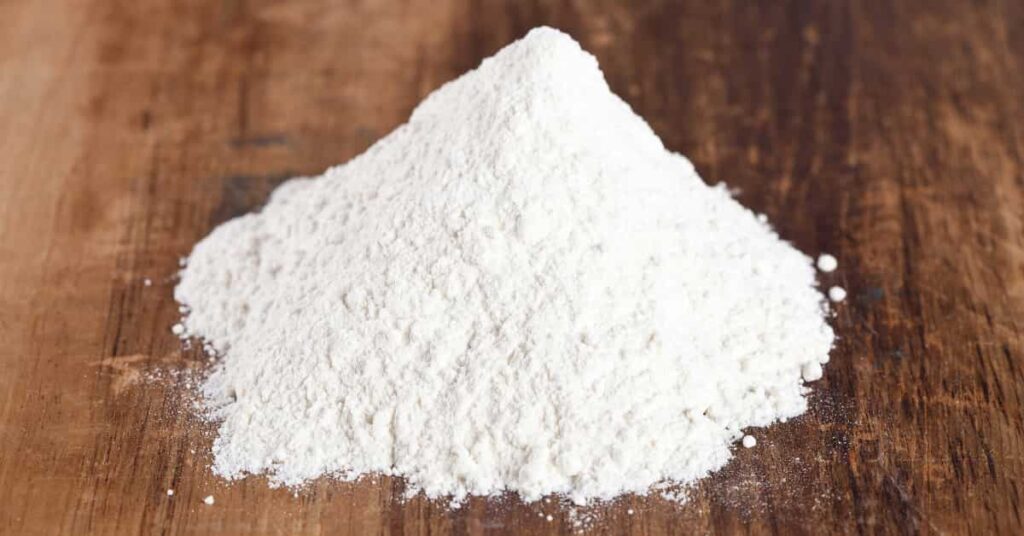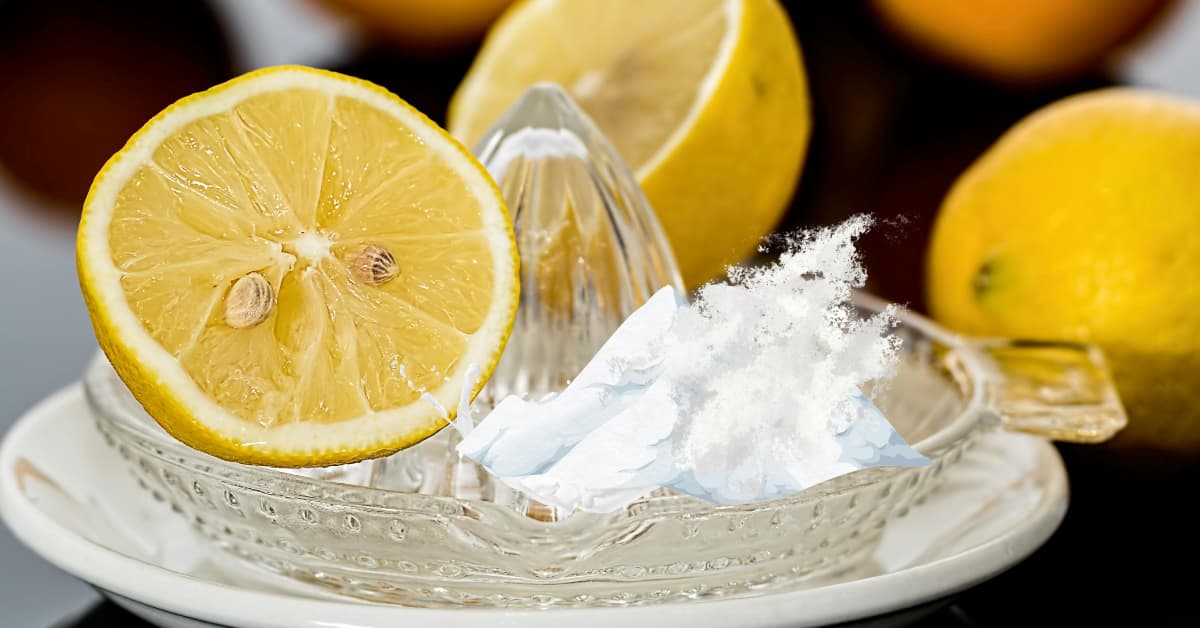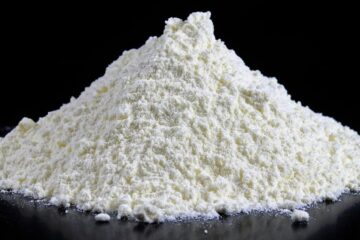Table of Contents
Introduction
Citric Acid is a substance found naturally in citrus fruits like lemons and limes, providing them their characteristic tart taste. It may also be artificially created.
But beyond its tangy charm, citric acid has many incredible uses and blessings. It can allow food to last longer, your skin to look brighter, or your cutlery to look shinier. It can also make some medications taste better or become easier to swallow.
Citric Acid
Citric Acid is an organic element found in large quantities in citrus fruits. It may help enhance skin health and protect against kidney stones and inflammation. Some also acknowledge it can support the body’s absorption of nutrients. In addition to its health advantages, citric acid is used in cleaning products, shampoos, hairsprays, and different cosmetic products.
Citric acid is inherently produced, giving lemons and limes their distinct sour taste. Many manufacturers or producers add citric acid to packaged foods and liquids to keep them fresh. Nevertheless, this citric acid is synthetic, unlike the naturally occurring citric acid in fruits.

Citric Acid Powder
Citric acid powder offers improved skin health through exfoliation and antioxidant protection, improved nutrient absorption (especially for minerals such as calcium and magnesium), and a possible role in controlling kidney stones. It also acts as a natural preservative and cleaning agent, with uses in food, cosmetics, and industrial applications.

Natural Sources of Citric Acid
You can find citric acid in numerous natural sources. Foods high in natural citric acid are citrus fruits, particularly the juice of lemons and limes. Other fruits and vegetables also include some natural citric acid.
These foods have the highest quantities of naturally occurring citric acid:
- Lemons
- Oranges
- Limes
- Grapefruits
- Pineapples
- Berries (except blueberries)
Other fruits & veggies with citric acid include:
- Carrots
- Tomatoes
- Broccoli
- Some peppers

Citric Acid Powder Benefits
Citric acid powder, in its inherently occurring form (in citrus fruits) and as the manufactured additive (often in the formation of citrate salts), is associated with several established therapeutic and physiological health advantages.
Here are 12 health miracles of citric acid powder, especially through its metabolic role and use as citrate salts:
Primary Therapeutic and Renal Benefits
1. Prevents Calcium Kidney Stones: Citrate, often defined as Potassium Citrate, is a medical therapy for controlling and treating calcium oxalate kidney stones by making urine less favorable for crystal formation.
2. Inhibits Stone Growth: Citrate ions bind with calcium in the urine, reducing calcium ion activity and inhibiting the nucleation and development of existing calcium and uric acid stones.
3. Treats Uric Acid Nephrolithiasis (Stones): Citric acid/citrate is utilized to alkalinize the urine, which allows the dissolution of uric acid stones and lowers the chance of their formation.
4. Manages Metabolic Acidosis: Varieties of citric Acid and sodium or potassium citrate are medically defined to treat metabolic acidosis, in which the body has a harmful buildup of acid in the blood.
5. Supports Urine Alkalinization: The citrate salts are metabolized in the body to bicarbonate, which helps raise the pH of the urine, lower acidity, and treat diseases like renal tubular acidosis.
Nutrient and Systemic Benefits
6. Enhances Mineral Absorption (Bioavailability): Citric Acid forms positively bioavailable salts (citrates) with vital minerals (like magnesium and calcium), meaning the body absorbs and uses them more effectively than other forms (e.g., magnesium citrate is better bioavailable than magnesium oxide).
7. Aids Energy Metabolism: Citrate is the first molecule in the Krebs cycle (or Citric Acid Cycle), the body’s primary metabolic pathway for generating usable energy (ATP) from carbohydrates, fats, and proteins.
8. Antioxidant Properties: Citric Acid, in its natural form (from fruits), is a registered antioxidant, protecting cells from harm caused by free radicals & oxidative stress.
9. Anti-Inflammatory Potential: Preclinical investigations, often in animal models, indicate that citric acid can lower levels of inflammatory markers and lipid peroxidation, especially in the liver and brain.
10. Laxative Effect (Magnesium Citrate): Magnesium citrate is generally used therapeutically as an adequate saline laxative to treat occasional constipation or clear the bowels before medical procedures.
11. Potential for Endothelial Improvement: Some analysis indicates that citric acid can lower inflammatory markers, which may assist in improving the function of the endothelium (the lining of blood vessels).
12. Anticoagulant Use (Sodium Citrate): Citrate salts are used in blood banking to act as anticoagulants (by chelating or binding calcium), preventing blood samples from clotting, thereby keeping them for testing.

What Citric Acid does do to your body?
Citric Acid, whether ingested naturally in fruits or as a manufactured additive/supplement, plays multiple fundamental and therapeutic roles in the body, mainly due to its chemical structure as a weak organic acid.
Here is what citric acid (and its salt form, citrate) does to the body:
1. Essential Role in Energy Production
- Fuels Metabolism: Citrate is the first molecule formed in your cells’ mitochondria in the Krebs cycle (or Citric Acid Cycle). This cycle is the central pathway responsible for converting carbohydrates, fats, & proteins from the food you eat into usable cellular energy (ATP {adenosine triphosphate, is the primary energy currency produced during cellular respiration. Cellular respiration transforms the chemical energy stored in nutrients, such as glucose, into ATP, which cells utilize to power functions such as muscle contraction and nerve impulse transmission. Most ATP is created during oxidative phosphorylation, with smaller amounts generated during glycolysis and the Krebs cycle.}).
2. Enhances Mineral Absorption
- Increases Bioavailability: Citric Acid acts as a chelating agent, binding to minerals (like calcium, magnesium, and zinc). When minerals are swallowed as citrate salts (e.g., calcium citrate or magnesium citrate), they are protected from degradation and are more smoothly absorbed through the intestinal wall, increasing their bioavailability.
3. Therapeutic Kidney and Urinary Effects
- Prevents Kidney Stones: When absorbed, citrate enters the urine, where it is a potent, natural inhibitor of kidney stone formation. It works by:
- Binding Calcium: Citrate binds with calcium, preventing it from mixing with other substances (like oxalate) to form crystals.
- Reducing Acidity: Citrate salts (like potassium citrate) are metabolized into alkaline substances, making the urine less acidic, which helps prevent the formation of uric acid and cystine stones.
- Treats Acidosis: Citrate salts are medically used to neutralize excess Acid in the blood (metabolic acidosis) by providing an alkaline buffer.
4. Digestive and Gut Effects
- Laxative Action: Magnesium citrate, a common supplement, draws water into the intestines, softens stool, and prompts bowel movements.
- Regulates Acidity: When added to supplements or foods, citric acid helps balance the pH, influencing how quickly or slowly specific nutrients are released and absorbed in the stomach and intestines.
5. Antioxidant and Protective Effects
- Combats Oxidative Stress: Naturally occurring citric acid is an antioxidant that helps neutralize free radicals, offering general cellular protection against damage linked to chronic diseases and aging.
In short, citric acid is crucial for energy conversion and is therapeutically vital for kidney and mineral health.

Is citric acid bad for you?
The FDA states that citric acid is “generally recognized as safe” in food & skin products and may have health benefits. Still, many experts think that more research is needed.
Citric acid may cause:
Skin irritation. It can cause stinging, swelling, or hives when it touches your skin for long periods.
Eye pain. It will burn or cause a fire if citric acid gets in the eyes. If this happens, flush them well with water for many minutes. If you wear contact lenses, take them out as soon as possible.
Tooth problems. Drinks and candies containing citric acid can wear away your teeth’s enamel (the outer layer). This can make the teeth more sensitive, turn them yellow, and make you more likely to get cavities.
Upset stomach. If you eat a medicine with citric acid by mouth, you may have side impacts such as nausea or vomiting.
Many times, drugs with citric acid may cause severe side effects, such as:
- Confusion
- Chest pain
- Lightheadedness
- Fast heartbeat
- Fatigue
- Tingling or numbness in your hands or feet
- Pain
If you notice any of these symptoms, contact the doctor right away.
Citric Acid Powder uses
Citric Acid, which is artificially manufactured, is added to many foods and drinks, medications, personal care products, and cleaning products. It’s an antimicrobial, flavoring agent, antioxidant, and more.
This kind of citric acid is used in:
The food industry. Citric Acid is many times added to packaged food and drinks. It assists in keeping canned & jarred foods fresh over long time periods. It may prevent some types of fresh-cut produce, for example, sliced apples, from turning brown. Citric acid may also assist in thickening foods or give them a slightly sour flavor. You might watch citric acid listed as an ingredient or element in some ice creams, sorbets, or sodas.
Alcohol production. Citric acid powder can balance out the acidity in a food or drink. Winemakers often add it to their products or results to improve the taste.
Drug manufacturing. Some creams contain citric acid powder to help clear up skin infections or illnesses. Other citric acid drugs that you can take by mouth may decrease the amount of acid in the urine. This may help prevent kidney stones. You can also take citric acid for metabolic acidosis, a build up of acid inside the body.
Supplements. Some individuals take calcium citrate supplements, which may assist in preventing kidney stones.
Personal care products. When manufacturers or producers mix citric acid powder with other ingredients, they may form a compound known as “alpha hydroxy acid,” which allows for smooth skin. It’s also in many cosmetics and toiletries, such as deodorant, hair spray, and lipstick, to help them last longer.
Household cleaners. Citric acid powder may eat away at hard water buildup, so you’ll often see it in dishwasher detergent. Other household cleaners include it as an ingredient because it can assist in removing stains and odors.
Disinfectants and cleaning products. Since citric acid powder kills some kinds of bacteria & viruses, you’ll discover it in insect sprays, products, or outcomes that kill fungus or algae, hand sanitizers, & even some tissues you utilize to blow the nose. Citric acid may safely remove toxins from polluted soil and clean up nuclear waste.
Conclusion
Citric Acid is naturally present in citrus and other fruits, like berries. You can also find manufactured forms of citric acid powder in several foods, pharmaceuticals, personal care items, and cleaning products. Citric Acid acts as a preservative and antioxidant, adds acidity, alters the pH, and enhances mineral absorption.
Most people can safely consume and use regular amounts of citric acid powder without concern. However, people with mold allergies may be allergic to compounds in synthetic versions of citric acid.




